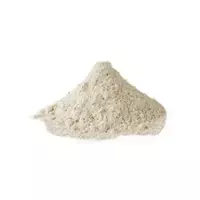Dough baking powder

What needs to be done to make the dough porous and lush, and the finished flour product tender and airy? Of course, add dough baking agents, which are chemicals that have the ability not only to reward the dough with a porous structure and increase its volume, but also to significantly speed up the baking process. Usually, the dough is loosened with yeast, soda, potash, ammonium carbonate and directly baking dough or baking powder. Alcoholic beverages - rum, cognac or alcohol - are much less often used for these purposes.
The main active substance when baking cakes, cakes, pies and cookies is yeast, but when the recipe does not provide for their use, soda or baking powder is used. Soda itself is not a baking powder - it begins to act only when interacting with acid or vinegar. And in the case of baking powder, dough is not required. Traditionally, one kilogram of wheat flour takes two teaspoons of baking soda or five of baking powder.
Often, both of these baking powder are present in recipes. Their presence is due to the fact that in the dough baking powder the components are selected so that they react without residue. However, there are also such products that have a strong acidic reaction - it is for them that soda is needed.
Dough baking powder composition
If you look at the packaging, you can get acquainted with the composition of the dough baking powder: citric acid, baking soda and wheat flour (or starch). When using it, you do not need to dissolve it, but only add it to the flour. The reaction begins exclusively during the baking process, so the finished dough can be left for a while, and not immediately put in the oven.
Quite often, many hostesses, looking at the composition of the dough baking powder, wonder whether this product is harmful and in what doses it can be consumed without fear of health.
Damage to dough baking powder
Experts answer this question ambiguously. Recently, dough disintegrators have begun to be produced quite widely, which include some not particularly useful substances: sodium dihydrogen phosphate, sodium hydrogen carbonate, sodium dihydropyrophosphate and others. Some names are worth it! Doctors warn that excessive use of phosphates leads to a breakdown of the balance in the human body between calcium and phosphorus. Therefore, it is worth thinking about the real harm of dough baking powder and modern components in its composition.
In addition, the starch used in such mixtures is often modified, which in itself, of course, is not particularly beneficial for health. Therefore, when purchasing dough baking powder, always pay attention to their composition - the most harmless will be a mixture of flour, soda and citric acid.
dough baking powder 79 kCal
Energy value of dough baking powder (Ratio of proteins, fats, carbohydrates - ju):
Proteins: 0.1 g (~ 0 kCal)
Fats: 0 g (~ 0 kCal)
Carbohydrates: 19.6 g (~ 78 kCal)
Energy ratio (bj | y): 1% | 0% | 99%
 Español
Español Français
Français Português
Português Русский
Русский 简体中文
简体中文 繁體中文
繁體中文 日本語
日本語 한국어
한국어 العربية
العربية Türkçe
Türkçe Қазақ
Қазақ Deutsch
Deutsch Italiano
Italiano Українська
Українська
